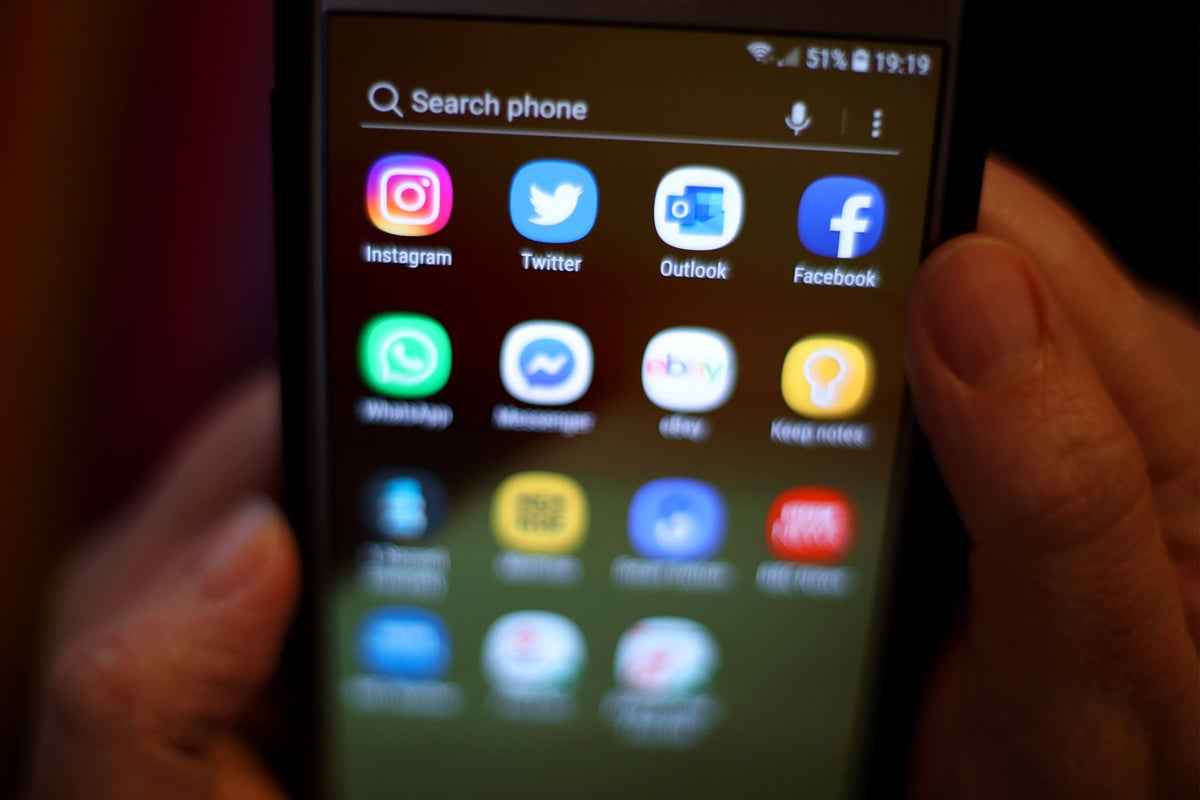
The public have been assured they can “simply swipe away” a test of a new public alert system when it emits a loud alarm on millions of phones on Sunday.
Oliver Dowden, the newly appointed Deputy Prime Minister, said no action was needed but in the future it might be the “sound that could save your life”.
The trial of a system designed to warn the public if there is a danger to life nearby will last for about 10 seconds at 3pm, with the alert being sent to every 4G and 5G device across the UK.
Once established, the system is intended to be used in life-threatening situations including flooding and wildfires.
There is no need to take any action and you can simply swipe it away as you would any other message you receive— Deputy Prime Minister Oliver Dowden
Mr Dowden — who held on to his role as Chancellor of the Duchy of Lancaster after being promoted on Friday to Deputy Prime Minister following Dominic Raab’s resignation after a report into bullying accusations — said: “Keep calm and carry on — that is the British way and it is exactly what the country will do when they receive this test alert at 3pm today.
“The Government’s number one job is to keep people safe and this is another tool in the toolkit for emergency situations, such as flooding or wildfires, and where there is a genuine risk to life.
“So it really is the sound that could save your life.
“I would encourage people to remember that today it is just a test; there is no need to take any action and you can simply swipe it away as you would any other message you receive.”
People who do not wish to receive the alerts will be able to opt out in their device settings, but officials hope the life-saving potential of the messages means users will keep them on.
Phones that are off or in airplane mode will not receive an alert.
The Cabinet Office compared the testing of the alert to a one-off fire drill.
The department said the siren-like sound will be no more prominent than the loudest ringtone setting on a mobile.
Phone users will be prompted to acknowledge the alert by swiping or clicking the message before being able to continue.
The test message will say: “This is a test of Emergency Alerts, a new UK government service that will warn you if there’s a life-threatening emergency nearby.
“In a real emergency, follow the instructions in the alert to keep yourself and others safe.
“Visit gov.uk/alerts for more information.
“This is a test. You do not need to take any action.”
The entertainment and sport sectors are planning how to guard against disruption to large events when the test goes off.
Organisers of the World Snooker Championship will pause play just before 3pm at the Crucible in Sheffield and it will resume after the alert.
The Society of London Theatre (Solt) said it had shared the Government’s guidance with its members and advised them to tell attendees to turn off their phones to “minimise disruption to shows”.
Harry Potter And The Cursed Child, Frozen, Mamma Mia! and The Lion King are among the shows putting on matinees on Sunday.
LW Theatres, Andrew Lloyd Webber’s group of seven West End venues including the London Palladium, said it planned to make an announcement before its shows but had no plans to change the times of its matinee performances.
For cinema-goers, a Vue spokesperson said: “Before every screening at Vue, we encourage our customers to turn their mobile phones off in order to fully immerse themselves in the big screen experience.”
The test on St George’s Day coincides with major events including the London Marathon and Premier League ties between Bournemouth and West Ham, and Newcastle and Tottenham Hotspur, kicking off at 2pm.
Officials said they have worked with the Football Association and the marathon’s organisers to make sure the impact of the test will be limited.
Drivers have been warned it will still be illegal to pick up their mobiles during the test, and domestic violence campaigners warned the alert could put people in danger by revealing the location of secret phones hidden by those at risk.
The Cabinet Office said experience of the system elsewhere, such as the US, Canada and Japan, had shown it worked best if people had received a test alert first.
Two regional tests have already been carried out, including reaching 120,000 people across Reading, an area that included drivers on the M4, the department said.
The AA said motorists may prefer to switch off their electronic devices before Sunday’s test as laws banning the use of handheld phones will still apply.
Drivers caught holding a phone behind the wheel face six penalty points and a £200 fine.
The National Centre for Domestic Violence warned people with hidden mobile phones to turn off the alerts to avoid revealing the location of the devices.







